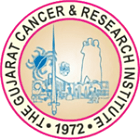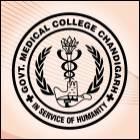- Home
- Courses
- Predictors
- Packages
- About
- Login
- Contact
- Near NRR Hospital, Thammenahalli Village, Bengaluru, Karnataka 560 090
- +91 8904151144
- cgmanagement00@gmail.com
Content Writer: Shubham S Nimje
Published on: Tue Jan 09 2024Updated on: Tue Jan 09 2024
Introduction: Bachelor of Unani Medicine and Surgery (BUMS) stands as a venerated healthcare discipline, rooted in traditional Unani medicine. This comprehensive guide aims to illuminate the essence of BUMS, encompassing educational insights, admission procedures, top colleges, career prospects, and more.
BUMS stands for Bachelor of Unani Medicine and Surgery, an undergraduate program that acquaints students with Unani medicine principles, diagnostics, and therapeutic methodologies.
Candidates seeking admission to BUMS programs typically require a 10+2 qualification with Physics, Chemistry, Biology, and English as compulsory subjects. Specific eligibility criteria may vary across institutions.
Admission processes for BUMS programs involve application submissions based on eligibility criteria, followed by counseling sessions or merit-based selection in some institutions.
Entrance exams such as NEET (National Eligibility cum Entrance Test), state-level medical entrance exams, or specific Unani medicine entrance tests serve as entry points for BUMS programs in India.
The BUMS curriculum encompasses subjects like Kulliyat (Basic Principles), Munafe-ul-Aza (Physiology), Ilmul Advia (Pharmacology), Amraz-e-Niswan (Gynecology), and Amraz-e-Atfal (Pediatrics) among others.
Students studying BUMS refer to various classical texts in Unani medicine such as the Canon of Medicine by Avicenna, Kitab al-Hawi by Razi, and Kitab al-Qanun by Ibn Sina for in-depth knowledge.
Renowned institutions offering BUMS programs include Aligarh Muslim University (AMU), Hamdard University, Ajmal Khan Tibbiya College (AKTC), and Government Nizamia Tibbi College, among others.
Graduates of BUMS can work as Hakims or Unani practitioners, medical officers, researchers, lecturers, healthcare consultants, or start their Unani clinics.
Government healthcare departments, private clinics, pharmaceutical companies, Unani hospitals, and educational institutions are potential recruiters for BUMS graduates.
BUMS graduates can contribute to public health initiatives, research in traditional medicine, pharmaceutical industries, academia, and play a vital role in promoting holistic healthcare.
BUMS programs include training in regimenal therapy involving methods like massage (Dalk), cupping (Hijama), and detoxification (Fasd) for therapeutic benefits.
Students learn about the preparation and utilization of Unani medicines, emphasizing herbal formulations, pharmacology, and their role in treating various diseases.
BUMS encompasses surgical procedures like Shalya Chikitsa, focusing on minor surgeries, wound management, and surgical interventions using Unani principles.
Ilaj-bil-Tadbeer includes dietary modifications, lifestyle interventions, and prophylactic measures to maintain health and prevent diseases.
BUMS practitioners collaborate with professionals from other medical systems, offering integrated healthcare solutions by combining Unani medicine with other disciplines.
BUMS emphasizes holistic approaches, considering psychological, social, and environmental factors while treating patients for comprehensive care.
BUMS programs encourage research in Unani medicine, focusing on evidence-based practices, clinical trials, and validating traditional remedies.
Advancements in technology are integrated into BUMS practices, incorporating electronic health records, telemedicine, and digital diagnostic tools for improved patient care.
BUMS professionals engage in CPD programs, attending seminars, workshops, and conferences to update their knowledge and skills in Unani medicine.
BUMS graduates pursue specialized certifications or short-term courses in areas like Unani pharmacology, research methodology, or clinical specialties for skill enhancement.
BUMS practitioners establish their private clinics or wellness centers, offering Unani treatments, health consultations, and herbal remedies.
Graduates explore opportunities in the herbal industry, developing Unani medicine-based products, supplements, or formulations for commercial use.
BUMS professionals collaborate globally, participating in research initiatives, exchange programs, and international conferences in traditional medicine.
BUMS graduates contribute to promoting Unani medicine globally, sharing knowledge, conducting workshops, and participating in cross-cultural healthcare programs.
BUMS practitioners engage in community health programs, providing healthcare access, health education, and preventive measures in underserved communities.
BUMS professionals advocate for the recognition and integration of traditional medicine systems in national healthcare policies and public health programs.
A: BUMS degrees from recognized institutions hold credibility globally, allowing graduates to practice or pursue further studies in countries that recognize Unani medicine.
A: BUMS graduates can work as Unani practitioners, researchers, lecturers, healthcare consultants, or pursue higher studies in specialized areas of Unani medicine.
A: BUMS graduates are trained in Unani medicine and are legally allowed to practice Unani medicine. However, practicing allopathic medicine without appropriate licensing is not permitted.





Copyright © 2023 Career Guidance Management
Design and Developed by CGM